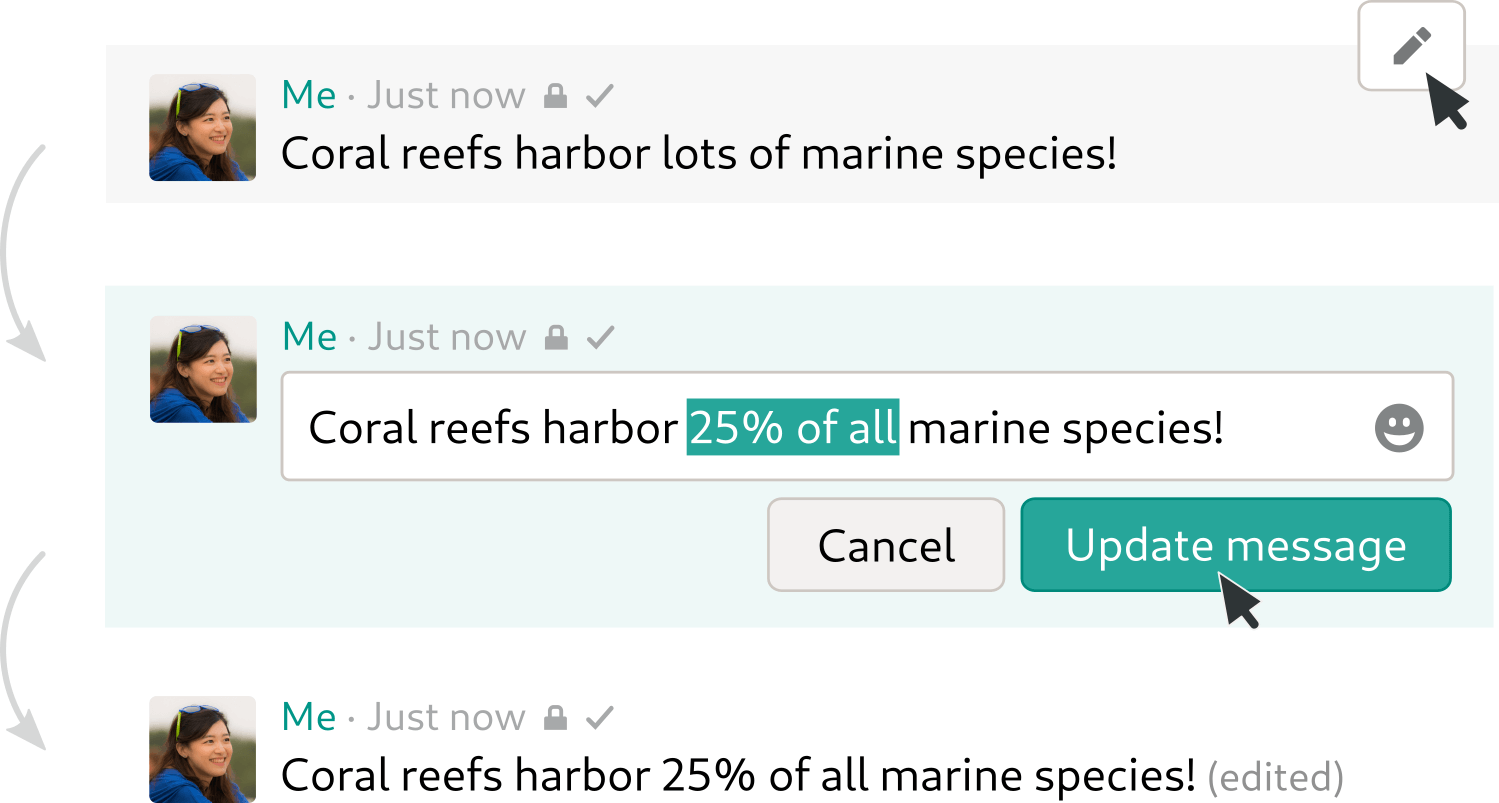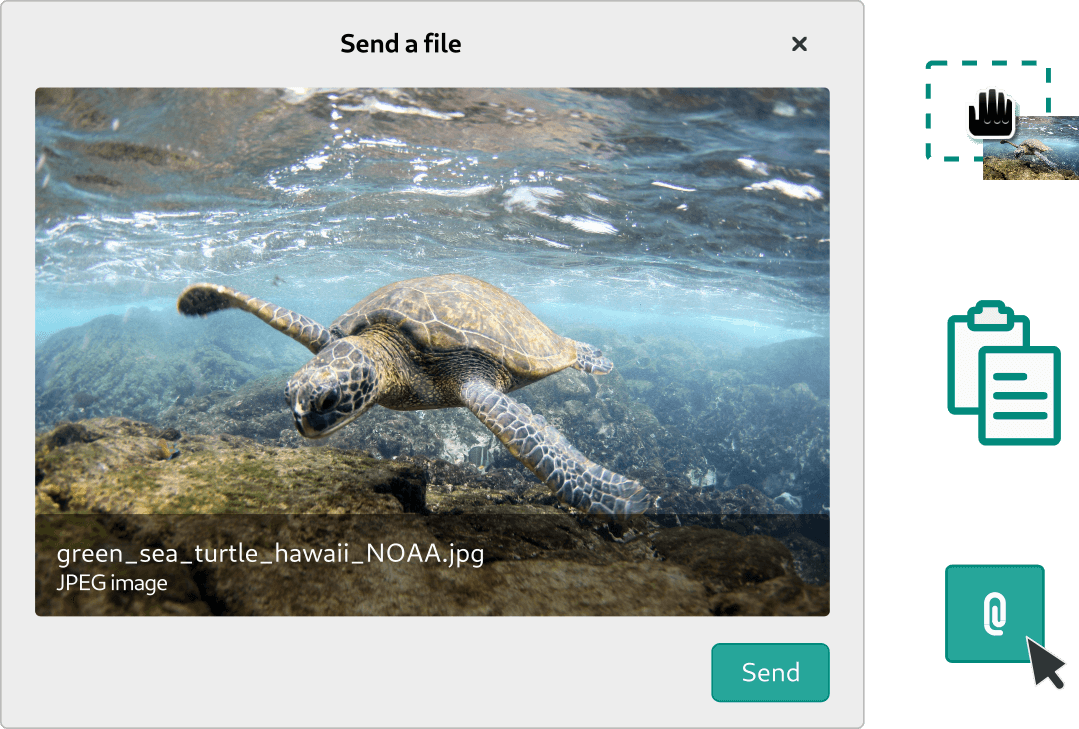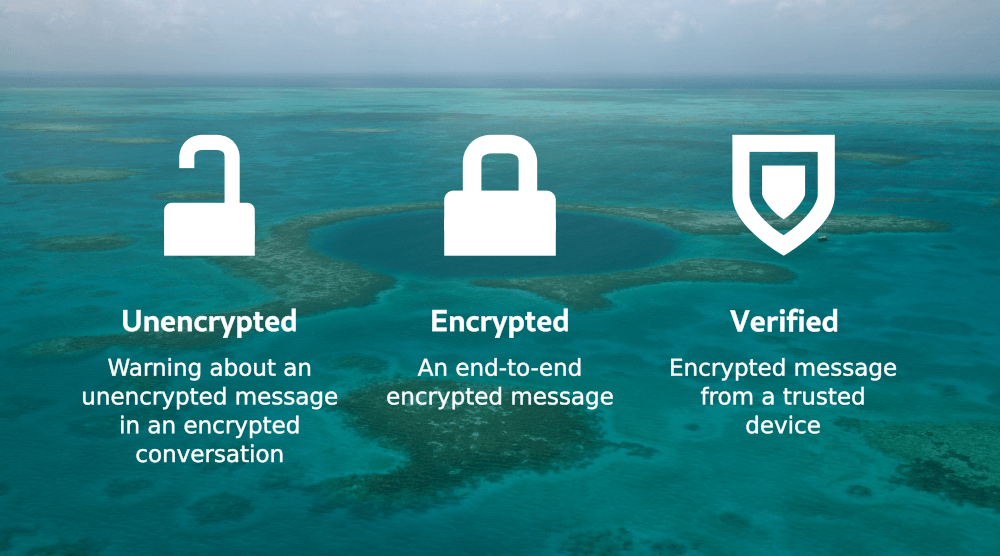Dino is a secure and open-source messaging application. It uses the XMPP (Jabber) protocol for decentralized communication. We aim to provide an intuitive, clean and modern user interface.
The 0.2 release adds message correction, improves the file upload functionality and provides more information about message encryption. Besides other smaller changes it also fixes a number of bugs.
Message correction

It is now possible to correct the last message you sent. You can access the function by hovering the message that you want to correct and then click the edit button that appears. If you’re a fan of shortcuts, you can also press the UP key. Last message correction has been the most frequently requested feature addition so far. We are happy about how it turned out and hope you are, too!
File sharing

You can now send files via drag and drop! Furthermore, you can now send Images by pasting them from your clipboard. As before, there is also still the option to press the “Send a File”-button.
Especially with those new ways of sending a file it is important to know that you are sending the right file to the right person. That’s why Dino now presents a confirmation dialog with a file preview and some file details.
Encryption

It has already been possible to accept, verify or reject OMEMO keys. Now you can see the relevant information alongside each message: A small lock or seal symbol above a message indicates whether the message was encrypted by an accepted or a verified device, respectively. A red, open lock warns you in case your contact sends unencrypted messages in an encrypted conversation.
Unread, pending and more…
Dino now displays the number of unread messages in the conversation list. The color of the circle tells you whether the new messages triggered a notification (e.g. direct messages, mentions in channels).
Furthermore, Dino lets you know in case your message has not been sent yet by displaying “pending…” alongside the message.
In moderated channels, Dino will inform you if you don’t have the permission to write messages and offer the possibility to request that permission from a moderator.
Coral Reefs
Coral reefs are diverse and important ecosystems. Climate change and local human influences endanger coral reefs around the world. We named this Dino release “Mexican Caribbean Coral Reefs” to help spread the word about what needs to be done to preserve these unique ecosystems.
While coral reefs only occupy 0.1% of the ocean area, they are home to 25% of all marine species. Those reefs are made up of the calcium carbonate skeletons of corals. Corals grow very slowly and thus reefs require thousands of years to form. Many tropical corals live in symbiosis with tiny algae, which provide the corals with nutrients in exchange for shelter.
Climate change harms corals in two ways: First, it raises the ocean temperatures. Corals lose their algae in high water temperatures, which is called “bleaching”. Without the algae the corals starve. Secondly, the ocean absorbs parts of the increasing carbon dioxide amounts from the atmosphere. In water, CO₂ reacts to carbonic acid, which dissolves coral skeletons.
Many coral reefs are located in the shallow water near coasts and are thus highly affected by local human activities: Sediments and nutrients are washed into the ocean and deprive the corals of light; Overfishing can negatively affect the whole ecosystem; Destructive fishing using poisons or explosives harms the corals.
For example, the coral cover in the Mexican Caribbean Coral Reefs decreased by 60% between 1980 and 2016. This was caused by mass bleaching events due to increased water temperature, hurricane impacts, and an increased amount of sediment due to deforestation [1].
Various programs aim to protect individual coral reefs from local dangers. However, the ecosystem coral reef can only be preserved by also eliminating the global threat: Climate change. According to multiple studies, coral reefs only have a chance of survival if the global temperature increase is limited to 1.5°C [2, 3]. Your actions have an impact.